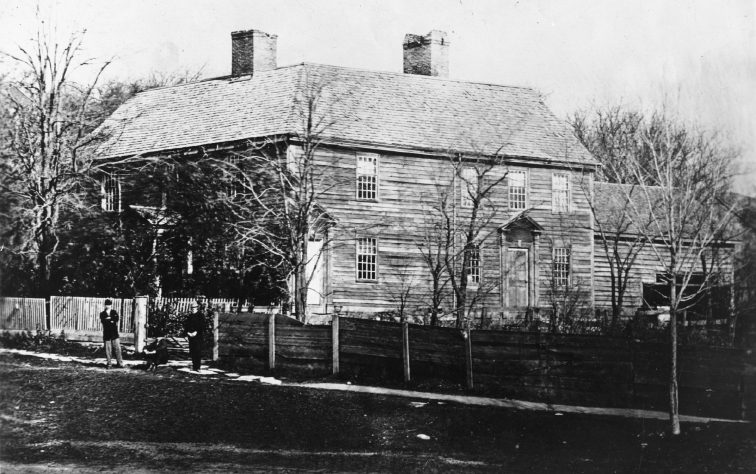Conflicts over Land and Labor Escalate

Conflicts among colonists and with Britain were not confined to frontier regions. Land riots directed against the leasing policies of landlords and the greed of speculators had plagued New York’s Hudson valley and New Jersey before the war, and these struggles continued into the 1760s. New clashes also occurred in the Carolinas as pioneer settlers like Herman Husband clashed with landlords and speculators there.
Even before the French and Indian War ended, the owners of large estates along the Hudson River in New York State raised rents and reduced the rights of tenants. These enormous estates had been granted in two periods. In 1629 the Dutch government established a patroon system by which men who provided fifty adult settlers to New Amsterdam were granted vast estates. Then in the early 1680s, the newly installed English governor Thomas Dongan granted lands to a select group of Englishmen. Some of these estates encompassed nearly 400 square miles, far larger than the island of Manhattan. In the early eighteenth century, the titles to some of these estates were challenged by small landowners and tenants, but even where legitimate titles existed, tenants declared a moral right to own the land they had long farmed. The manors and estates of the Hudson valley, they claimed, were more appropriate to a feudal government than to an enlightened empire.
Farmers in neighboring New Hampshire were drawn into battles over land when the king’s Privy Council in London decided in 1764 that the Green Mountains belonged to New York rather than New Hampshire. Landlords along the Hudson River hoped to expand eastward into this region, but the farmers already living there claimed they had bought the land in good faith and deserved to keep it.
Following the Privy Council’s decision, groups of farmers in New Hampshire waged guerrilla warfare against New York authorities, large landowners, and New York farmers who now claimed land that others had already cleared and settled. These Green Mountain Boys, led by Ethan Allen, refused to recognize New York authorities as legitimate in the region and established their own local governments and popular courts.
Inspired by the Green Mountain Boys and earlier uprisings in New Jersey, tenants in the Hudson valley banded together in 1765–1766. Under the leadership of William Prendergast, a group of tenants calling themselves Levellers refused to pay rent and instead claimed freehold title to the land they farmed. New York tenants petitioned the colonial assembly and sought redress in a variety of ways. But landowners refused to negotiate, and Prendergast concluded that “there was no law for poor men.”
In many ways, the beliefs of Allen, Prendergast, and their followers echoed those of Herman Husband and the North Carolina Regulators. All of these groups developed visible, well-organized networks of supporters, targeted specific landlords, sought redress first through colonial courts and assemblies, and then established popular militias and other institutions to govern themselves and to challenge those in authority. These challenges included attacks on property: Burning barns, attacking livestock, and pulling down fences were common practices among irate farmers.
Conflicts in North Carolina escalated when the colonial assembly, dominated by the eastern slaveholding elite, passed a measure to build a stately mansion for Governor Tryon with public funds. Outraged frontier farmers, many already in debt and paying high taxes, withheld their taxes, took over courthouses, and harassed corrupt local officials. By the spring of 1771, faced with what he viewed as open rebellion on his western frontier, Governor Tryon recruited a thousand militiamen to confront the Regulators. In May, armed conflict erupted. The Regulators were defeated, and half a dozen leaders were publicly hanged. Herman Husband managed to escape and headed to the Pennsylvania frontier to establish a new homestead for his family. There, too, he met frontier farmers angered by their lack of political representation, economic opportunity, and protection from Indians.
Review & Relate
|
How did the French and Indian War and the subsequent peace treaty affect relations between Britain and its North American subjects? |
How did the French and Indian War and the increasing power of large landowners contribute to conflict between average colonists and colonial elites? |